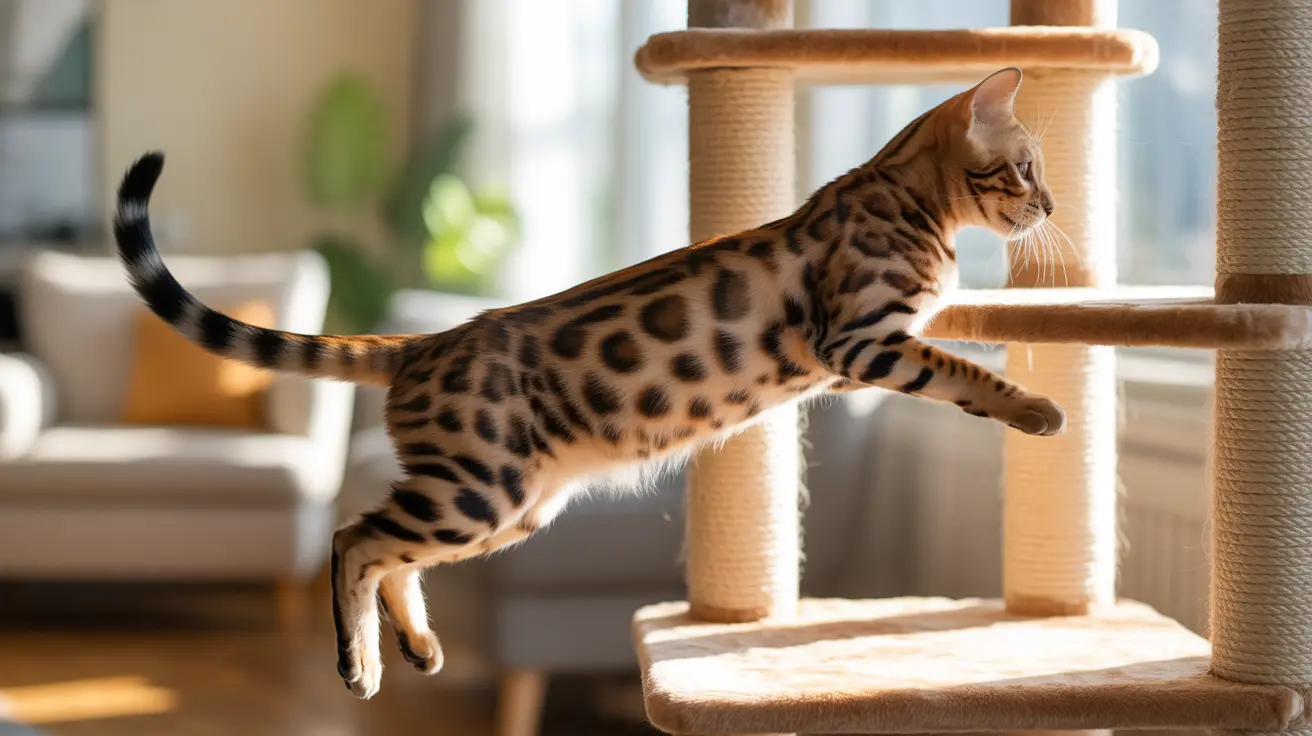From the striking Bengal to the majestic Savannah, exotic cats represent some of the most fascinating and sought-after feline companions in the world. These remarkable breeds combine the allure of wild cats with the companionship of domestic pets, creating unique and captivating household companions that stand apart from traditional cat breeds.
In this comprehensive guide, we'll explore the diverse world of exotic cats, their distinctive characteristics, and what potential owners need to know before welcoming these extraordinary felines into their homes.
Understanding Exotic Cat Breeds
Exotic cats encompass a wide range of breeds, from true hybrids with wild ancestry to specially bred domestic cats with unusual features. These breeds often showcase distinctive physical traits that set them apart from typical house cats, including unique coat patterns, muscular builds, and striking facial features.
Notable Exotic Cat Breeds and Their Characteristics
The Savannah cat, a hybrid between a domestic cat and an African serval, stands out for its tall, lean build and spotted coat. These cats can reach up to 25 pounds and maintain strong hunting instincts, making them unsuitable for homes with small pets.
Bengal cats, developed from Asian leopard cat crosses, feature stunning leopard-like spots and a muscular build. Known for their intelligence and energy, they often display an unusual fondness for water and require significant environmental enrichment.
Care Requirements for Exotic Cats
Exotic cat breeds typically demand more attention and resources than traditional domestic cats. Their high energy levels and intelligence require extensive environmental enrichment, including climbing structures, interactive toys, and plenty of space to exercise.
Environmental Needs
- Large, multi-level cat trees
- Secure outdoor enclosures (catios)
- Interactive puzzle toys
- Regular playtime sessions
- Climbing opportunities
Diet and Exercise
These active breeds often require specialized diets to maintain their muscular builds and energy levels. Many owners find success with high-protein diets that mirror their wild ancestors' natural nutrition needs.
Legal Considerations and Ownership Requirements
Before acquiring an exotic cat, potential owners must research local regulations carefully. Some jurisdictions restrict or prohibit certain hybrid breeds, particularly those with recent wild ancestry. Additionally, many exotic breeds require specialized veterinary care and may need documentation or permits.
Health and Behavioral Considerations
Exotic cats may face unique health challenges related to their breeding history. Regular veterinary check-ups with professionals experienced in exotic breeds are essential. These cats also typically display more intense behavioral traits, including:
- Strong hunting instincts
- High territorial marking tendencies
- Increased vocalization
- Greater need for mental stimulation
Cost and Investment Considerations
Exotic cat breeds often command premium prices, with some varieties costing several thousand dollars. Beyond the initial purchase price, owners should budget for:
- High-quality nutrition
- Extensive environmental enrichment
- Regular veterinary care
- Potential specialized training or behavioral consultation
Frequently Asked Questions
What are the most popular exotic cat breeds and their unique features?
The most popular exotic breeds include Bengals (known for their spotted coats), Savannahs (recognized for their tall, athletic builds), and Maine Coons (famous for their large size and gentle temperament). Each breed offers unique features ranging from wild-looking patterns to distinctive personalities.
How do the care and behavior of exotic cats differ from typical domestic cats?
Exotic cats typically require more attention, exercise, and mental stimulation than regular domestic cats. They often display higher energy levels, stronger hunting instincts, and may need specialized diets and environmental enrichment.
What legal restrictions should I be aware of before adopting an exotic cat like a Savannah or Bengal?
Legal restrictions vary by location and generation of the hybrid breed. Some areas prohibit certain hybrid cats entirely, while others require special permits. Always check local regulations and consult with breeders about specific requirements.
Are exotic cats prone to specific health or behavioral challenges I should prepare for?
Some exotic breeds may face breed-specific health issues and typically display more intense behavioral traits, including marking territory and increased vocalization. Regular veterinary care and understanding of breed-specific needs are essential.
How can I provide the proper environment and enrichment for a high-energy exotic cat breed?
Create an enriched environment with climbing structures, interactive toys, and secure outdoor spaces. Dedicate time for daily play sessions, provide puzzle feeders, and consider installing cat-friendly shelving or catios for additional stimulation.






